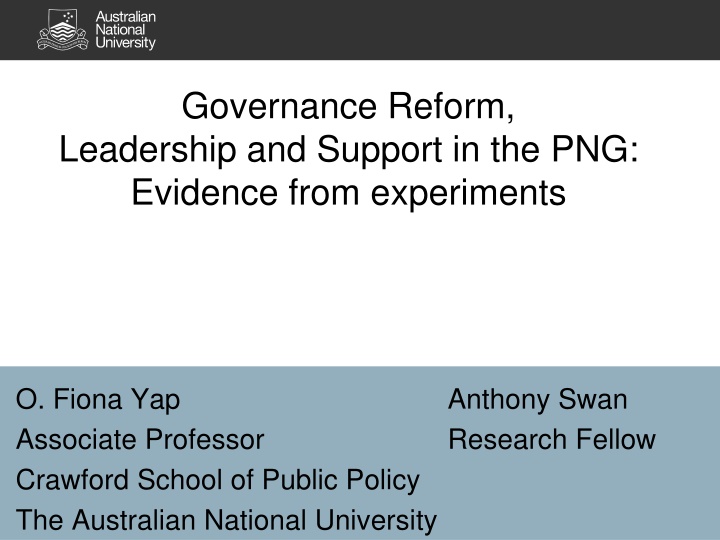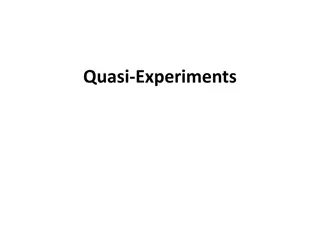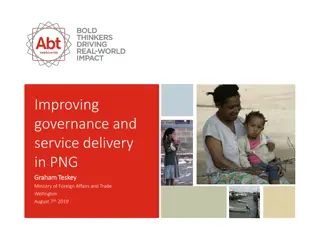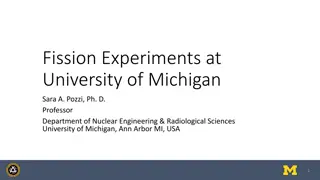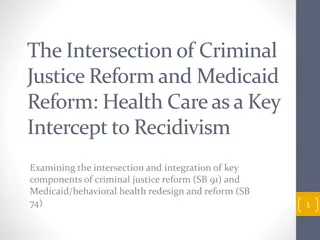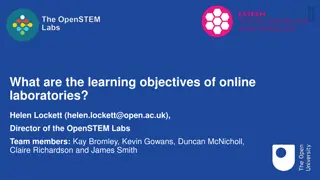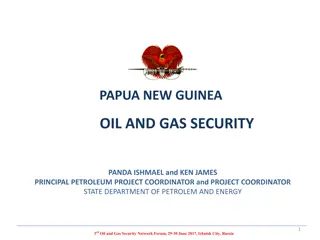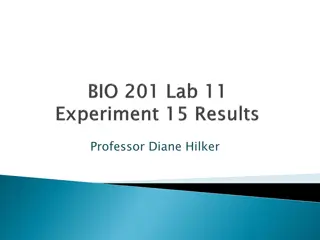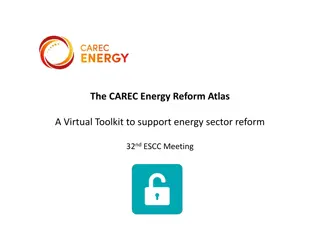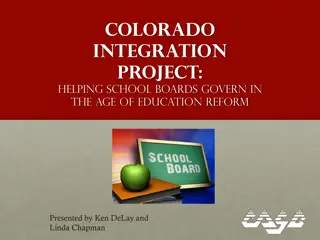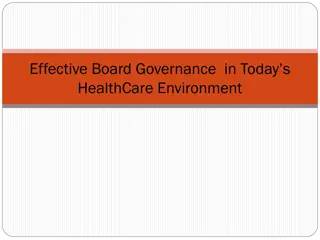Governance Reform and Leadership Support in PNG: Insights from Experiments
This research delves into the conditions under which citizens support governance reform and take up leadership roles to garner broad support for reform in Papua New Guinea. It highlights the significance of citizen demand and government supply of reforms, addressing the implications of individual choices on societal governance outcomes. The study focuses on how individuals navigate trade-offs between personal gains and collective welfare, examining public support for reforms despite persistent performance challenges like corruption. Experimental procedures involving student participation shed light on decision-making dynamics in this context.
Download Presentation

Please find below an Image/Link to download the presentation.
The content on the website is provided AS IS for your information and personal use only. It may not be sold, licensed, or shared on other websites without obtaining consent from the author.If you encounter any issues during the download, it is possible that the publisher has removed the file from their server.
You are allowed to download the files provided on this website for personal or commercial use, subject to the condition that they are used lawfully. All files are the property of their respective owners.
The content on the website is provided AS IS for your information and personal use only. It may not be sold, licensed, or shared on other websites without obtaining consent from the author.
E N D
Presentation Transcript
Governance Reform, Leadership and Support in the PNG: Evidence from experiments O. Fiona Yap Associate Professor Crawford School of Public Policy The Australian National University Anthony Swan Research Fellow
Reform, Leadership and Support in PNG Roadmap: 1) Aims & objectives 2) Significance of research 3) Research question, and why PNG 4) Experiment and procedure 5) Findings 6) Conclusion 2
1. Aims and Objectives Evaluate conditions under which citizens provide support for governance reform, or undertake the role of leadership to generate broad support for reform Also, how peaceful and constructive collective action can lead to improved governance in PNG 3
2A. Research and Significance Why this is significant: Reforms to improve governance, government performance, or public service delivery relies on the demand for and supply of reforms Supply of reforms: Eg., policies to reduce bureaucracy, waste, corruption Demand for reforms: citizens push for improved government performance or public service delivery 4
2B. Research and Significance Why this is significant: However, even as citizens seek reforms, they may contribute to performance or delivery problems Individual s choices may reinforce performance or service delivery problems at the societal or collective level. Eg., making sidepayments to get better or faster service This leads to a weak governance trap: social behaviors reinforce poor performance over ethical ones, and government reforms that are adopted continue to fail Principled principal problem: honest players are affected by, rather than forebear, corrupt practices (Peiffer and Alvarez 2015) 5
3. Research question Research question: How do individuals choose, faced with a trade-off between outcomes that provide private gains and outcomes that provide collective good? PNG is interesting for study: 1) Public support for reforms 2) Persistent performance problems 3) Consistent with many countries, eg., despite significant efforts, corruption remains stubbornly intact (Rothstein 2011; Mungiu-Pippidi 2013; Persson et al 2013) 6
4A. Experiment and procedure Students play 3 or 4 games. A total of 444 participated. 1. Participants individually decide if they wish to pay gris moni to get better outcome collective decisions determine whether there is a low or high corruption environment, which in turn affects services 2. Participants then choose to attend a peaceful forum focused on orderly and constructive debate to support reforms 3. Also choose whether to use social media to drum up support 4. And, choose if they will be a leader to drum up support Final payout is based on choices, whether reforms occur, and chance of gris moni payment being detected 7
5A. Findings Round 1: Status quo, low detection (1 in 6 chance of detection) Participants choose to pay nothing and get standard service or Pay 50 toea (gris moni) to get favourable treatment Threshold for low v high corruption=20 percent Payouts for choices Pay nothing, standard service, receive: 10 kina 3 kina Pay gris moni, if not detected, receive: 30 kina 7 kina Pay gris money, if detected, receive: 2 kina 2 kina Low corruption environment High corruption environment 8
5A. Findings Round 1: Status quo, low monitoring (1 in 6 chance of detection) Participants choose to pay nothing and get standard service or Students pay 50 toea (gris moni) to get favourable treatment Threshold for low v high corruption=20 percent Number Percent 315 71.75% Pay nothing, standard service Pay gris moni, better outcome Total 124 28.25% 439 100% 9
5B. Findings Round 2: Imagine reforms have been adopted, so there is a high monitoring and higher chance of detection (4 in 6 chance of detection) Students choose to pay nothing and get standard service, or Students pay 50 toea (gris moni) to get favourable treatment Threshold for low v high corruption=20 percent Payouts for choices Pay nothing, standard service, receive: 10 kina 3 kina Pay gris moni, if not detected, receive: 30 kina 7 kina Pay gris money, if detected, receive: 2 kina 2 kina Low corruption environment High corruption environment 10
5B. Findings Round 2: Imagine reforms have been adopted, so there is a high chance of detection Students choose to pay nothing and get standard service, or Students pay 50 toea (gris moni) to get favourable treatment Threshold for low v high corruption=20 percent Number Percent 353 80.59% Pay nothing, standard service Pay gris moni, better outcome Total 85 19.41% 438 100% 11
5C. Findings: Status quo or Reform? Round 3: Support reforms pay 1 kina to attend a peaceful forum focused on orderly and constructive debate Threshold: 50 percent pay and attend, then reforms go forward Expectation: the uncertainty and dependence on others may lead to poor attendance Surprise: Number Percent 94 93.07% Pay 1kina to attend forum, support reform Pay nothing, do not support reform Total 7 6.93% 101 100% 12
5D. Findings: Status quo or Reform? Round 3: Support reforms pay 2.5kina to attend a peaceful forum focused on orderly and constructive debate Threshold: 50 percent pay and attend, for reforms to go forward Expectation: the uncertainty and dependence on others may lead to poor attendance Number Percent 134 87.58 % Pay 2.5 kina to attend forum & support reform Pay nothing, do not support reform Total 19 12.42% 153 100% 13
5E. Findings: Status quo or Reform? Round 4A: Pay 1 kina to pledge on social media to attend forum Round 4B: Observe percentage pledge, then choose to pay 2.5 kina to attend forum Expectations: Making a pledge does not mean that attendance, people how pledge may not attend Total Round 4B: Pay 2.5 kina to attend forum 52 (57.14%) Round 4B: pay nothing, do not attend 7 (7.69%) 59 (64.84%) Round 4A: pay 1 kina to pledge to attend Round 4A: pay nothing Total 25 (27.47%) 77 (84.62%) 7 (7.69%) 14 (15.38%) 32 (35.16%) 91 (100%) 14
5F. Findings: Status quo or Reform? Round 5A: Pay 1 kina to be leader, or nothing to be follower Round 5B: Leaders must pay 2.5 kina to attend forum, followers observe percentage, and choose if attend forum Expectations: Total Round 5B: Pay 2.5 kina to attend forum 73 (85.88%) Round 5B: pay nothing, do not attend 1 (1.18 %) 74 (87.06%) Round 5A: pay 1 kina to be leader 7 (8.24%) 4 (4.71%) 11 (12.94%) Round 5A: pay nothing to be follower Total 80 (94.12%) 5 (5.88%) 85 (100%) 15
5G. Findings: What do the numbers tell us? Proportion pay gris money, low monitoring = 28.25% Proportion pay gris money, high monitoring = 19.41% T-statistic = 3.085, Means test = 0.002 Choices change with high monitoring Proportion pledge = 57.14% Proportion lead = 85.88% T-statistic = 3.573, Means test = 0.0005 Participants prefer to lead than pledge 16
6A. Conclusion Results: Choices change with monitoring and detection changes 87% - 93 % will attend a peaceful forum for orderly and constructive debate on reforms More than 85% willing to undertake leadership roles in such forum Participants prefer to lead than pledge to attend such forum 17
6B. Conclusion Relevance: Considers the role of educated Papua New Guineans, and potential future leaders of the country to peacefully and meaningful engage in policy debate around governance issues Inform policy makers, academics (particularly those at UPNG), and students at UPNG on how social norms can reinforce governance systems 18
